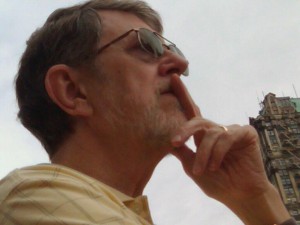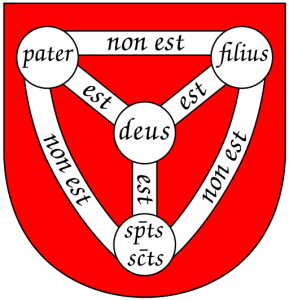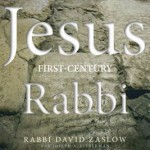Something different: Today, on the Solemnity of the Most Holy Trinity, I’ve opened this space for a homily from my husband, Deacon Jerry Schiffer.
Homily for the Solemnity of the Most Holy Trinity
Year B
May 31, 2015
Not long ago, an acquaintance who had been ill for more than two years, died – but not before he had fulfilled some of the wishes on his “bucket list.”

Included on that list was spending time in his favorite bar, which he did all the way up to the day he died. Also on his list was buying and riding an expensive Italian motorcycle, which, because of the size of the bike, proved to be too much for him to handle in his weakened condition. So he bought a smaller bike that was easier for him to ride.
Items on his wish list were worldly in nature and focused on practical life experiences that he wanted to enjoy before his death.
A short time later, I encountered another bucket list created by New York Times contributor David Brooks, who offered a different perspective.
Brooks saw a need for a wish list of greater substance and meaning – what he called a “Moral Bucket List” – that would transform the character of the person while his wishes were being fulfilled.
Brooks came up with the idea for this type of list after encountering in his lifetime certain people whom he described as “radiating an inner light.” These people, Brooks noted, focused not on themselves but on others, and on ways that they could serve others in their lives.
Brooks admired these people and he realized that he would have to change if he were to become the same type of person. Life as he knew it in our society no longer offered whatever it would take to make him happy. Our culture encourages educational and career success, he noted, but does little toward building inner character.
“If you live for external achievement,” Brooks wrote, “years pass and the deepest parts of you go unexplored and unstructured. You figure as long as you are not obviously hurting anybody and people seem to like you, you must be okay. But you live with an unconscious boredom, separated from the deepest meaning of life and the highest moral joys.”
Brooks concluded that “. . . wonderful people are made, not born” – built slowly from specific moral and spiritual accomplishments – experiences one should have on the way to the richest possible inner life.
In considering his life, Brooks saw a need for a bucket list of a higher order filled with wishes that would offer more than just pleasure. They would offer the opportunity for personal growth and development, as well.
Brooks was on to something, of course. But while his list was of a higher order than many bucket lists might be, it still did not reach beyond the natural. Brooks could have looked even higher – to the supernatural order – to consider the source of all the good that he was seeking – the good that he so obviously admires.
We don’t have to wait until we’re going to die to create a bucket lists to satisfy the unfulfilled desires of our hearts. When we do, will God appear anywhere on that list? Will the development of a true and meaningful relationship with God be a priority on our lists?
Today we are celebrating the Solemnity of the Most Holy Trinity and it’s a good time to consider the place that God should occupy in each of our lives.
It’s no secret that our time on this earth is limited, sometimes to a very few years, but eternity has no limits. So it would seem to make sense not to limit our desires to earthly pleasures, like the first gentleman I discussed, or even to the moral virtues that David Brooks finds attractive. Rather, I think it’s a good time to focus on a relationship with the God who makes possible and attractive all things physical and moral, the God who is the source of all that is meaningful in life.
We learn about the nature of God in today’s readings. In the Old Testament, we recognize a God who loved and protected his people in the time of Moses — in a God who was intimately involved and interested in the lives of his people. In the reading from the Book of Deuteronomy, the leader of the Israelites sees with great clarity the presence of God in the daily life of the Jewish nation and in their escape from captivity in Egypt.
Paul’s letter to the Romans also reveals a loving God who is intimately involved in the lives of his people. Paul assures us that those who are led by the Spirit become the adopted children of God, able to know and love God as “Abba,” – as our Father.
Think about the word “children” and all that that word entails. Children are precious in the eyes of a loving parent and yet, Paul tells us, we are actually children of God.
To us, God is “Abba” and we recognize him as our father with all that that means – as the loving father portrayed in Chapter 15 of the Gospel of Luke – in the parable of the Prodigal Son. If you remember, in that parable, the father loved his son enough to grant him his freedom and yet stood by to welcome him with open arms when the son repented of his wrongdoing and returned to love of his Abba – his Father.
In the writings of the New Testament the character of God is possibly best revealed by the Apostle John in the 4th chapter of his 1st letter. “God is love,” John asserts, “and whoever remains in love remains in God and God in him.” In Old and New Testament passages, God is revealed as the infinite source of love for the people he has created.
Our understanding of a Trinitarian God – in three persons in one God – comes most directly from the revelation of the Trinity by Jesus in the New Testament. We express that belief every week in the Sign of the Cross that we make and in the Creed and other prayers of the Mass.
In New Testament passages and in those prayers, we understand that the three persons of the Trinity – the Father, the Son, and the Holy Spirit – exist as distinct persons in relation to one another in the plan for our salvation.
We know God the Father as creator of the world, of all that is good, as the first origin of everything, and the source of goodness and love. God the Father created us out of love to be with him for all eternity.
We know God the Son as the Redeemer, who paid the price for our freedom from the captivity of sin. From Sacred Scripture, we know Jesus to be a source of healing and compassion for those in need. Out of love for us, God the Son died on a cross that we might live with him for all eternity.
God the Holy Spirit enables us to know truth and gives us the courage to pursue truth in our lives. It is through his love that we come to know about the Trinity and have the courage to live our faith. As one God, the Father, Son and Holy Spirit call us all to salvation – to unity with the Trinity for all eternity.
The Church teaches us that the Trinity – the Father, Son and Holy Spirit – is, in itself, “an infinite communion of love.” But this revelation of God as love itself and the source of all love has serious implications for each one of us. Having been created in the image and likeness of God, we are called to share in that love and to live as children of God in truth and in love.
“In the communion of God that is love,” the Church teaches, “and in which the three Divine Persons mutually love one another and are the one God, the human person is called to discover the origin and goal of his existence and of history.”
It is in the Blessed Trinity that we find the true meaning of our existence and the true meaning of God’s love in our lives. It is for the love of God and one another that we were born, that we continue to exist, and for which we were called to our eternal destiny.
So what can we learn from today’s celebration of the Solemnity of the Blessed Trinity?
First, we believe in a triune God – in three persons in one God, each with a particular role in bringing us to salvation.
Secondly, we believe in a loving God who created us in love, redeemed us in love, and nurtures us in love so that we might spend eternity in his presence.
And finally, because we are created in God’s image and likeness, we believe we are called to holiness – to that same love that is God himself. Whatever our role in life, whatever our occupation, we are called to be motivated by love – love of God and one another.
And so, as we reflect on our lives on this earth and we think about the things that we most desire in this life, perhaps it would make sense to list “building a relationship with God” as the most important item on our bucket lists.











